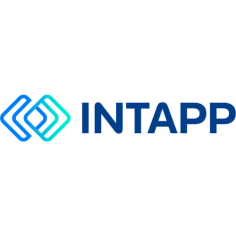Industry analysis from Intapp: Business process in power
This article was also featured as an industry analysis in the March 2016 issue of Briefing. To read the issue in full, download Briefing.
Process management technology – once the domain of lengthy, complex projects involving extensive manual configuration and coding – is undergoing a seachange. With the availability of business applications that help to standardise processes within an organisation, projects that once consumed months can now take only days.
For law firms, this has put more control in the hands of the IT department and the business users – no longer so beholden to external consultants. It has also opened new possibilities for automating and expediting processes and workflows on a broader scale, and with greater impact.
Back-office to business process
When Intapp first released Intapp Flow in 2014, we found that many firms wanted simpler ways to automate their back-office processes. Workflows related to IT, finance and HR requests topped the list of the typical use cases that firms tackled first.
Moreover, adoption has been enthusiastic. Long-time users of Intapp Integrate (formerly known as Integration Builder), the leading integration platform for law firms, quickly embraced the intuitive front end of Intapp Flow. Its interface makes it easy for business analysts to create, visualise and update workflows – and then for lawyers and staff to adopt them.
Other early adopters were firms already using Intapp Open for business intake. They wanted to extend that workflow solution to additional business processes.
Over time, Intapp has found firms applying the product to a much broader range of use cases than could have been imagined. This highlights how business process management (BPM) practices are now starting to take hold across firms more broadly. Clearly, legal businesses are pursuing ways to make internal operations – and the external delivery of client service – more efficient and effective.
Adoption options
Here are a handful of key areas – beyond internal IT, finance and HR operations – where law firms seem to be optimising their processes.
Complex matters, involving a large number of parties, such as insolvencies, tend to generate a large amount of associated data – and this needs to be entered, tracked and updated. But firms can now automatically update information in a central repository, creating a single source of truth for matter information and eliminating the need to update multiple spreadsheets.
Document services centres Many firms are taking advantage of document services centres that allow a dedicated group of specialists to focus on document preparation and editing tasks. Workflow software can now help to manage requests from dispersed fee earners, assign tasks to production specialists, track progress and send notifications. The process can also be integrated with the firm’s document management system.
IP practice automation Workflows integrated with docketing systems and DMS are enabling IP law firms and practice groups to streamline a variety of processes – allowing them to manage incoming correspondence, patent documents and deadlines, and to automate assignment and routing of tasks.
Electronic supply chain management In the insurance industry, businesses such as Guidewire and ediTRACK have helped to transform how insurers manage their core business processes and link systems with suppliers electronically, for more control, visibility and significant efficiency gains.
And law firms working with insurers can now also connect their systems to those of their clients, allowing them to receive instructions electronically.
Higher standards
There are many workflow providers offering proprietary solutions for specific types of business processes – but standardising on a single platform helps to ensure consistency of approach, minimises the need to train and re-train users, and makes it easier and more efficient for IT to accelerate, scale and support changing business and legal process management needs over time.
So, combining application-specific expertise with the benefits of a standard workflow platform, Intapp has now unveiled Intapp Marketplace, showcasing over 80 solutions across a diverse range of categories from service partners.
It has been pleasing to see this new resource gain momentum, and additional innovative use cases should certainly develop as the ecosystem explores ever more ways to apply BPM methodologies to law firm operations, legal practice management, and client relationship management.



